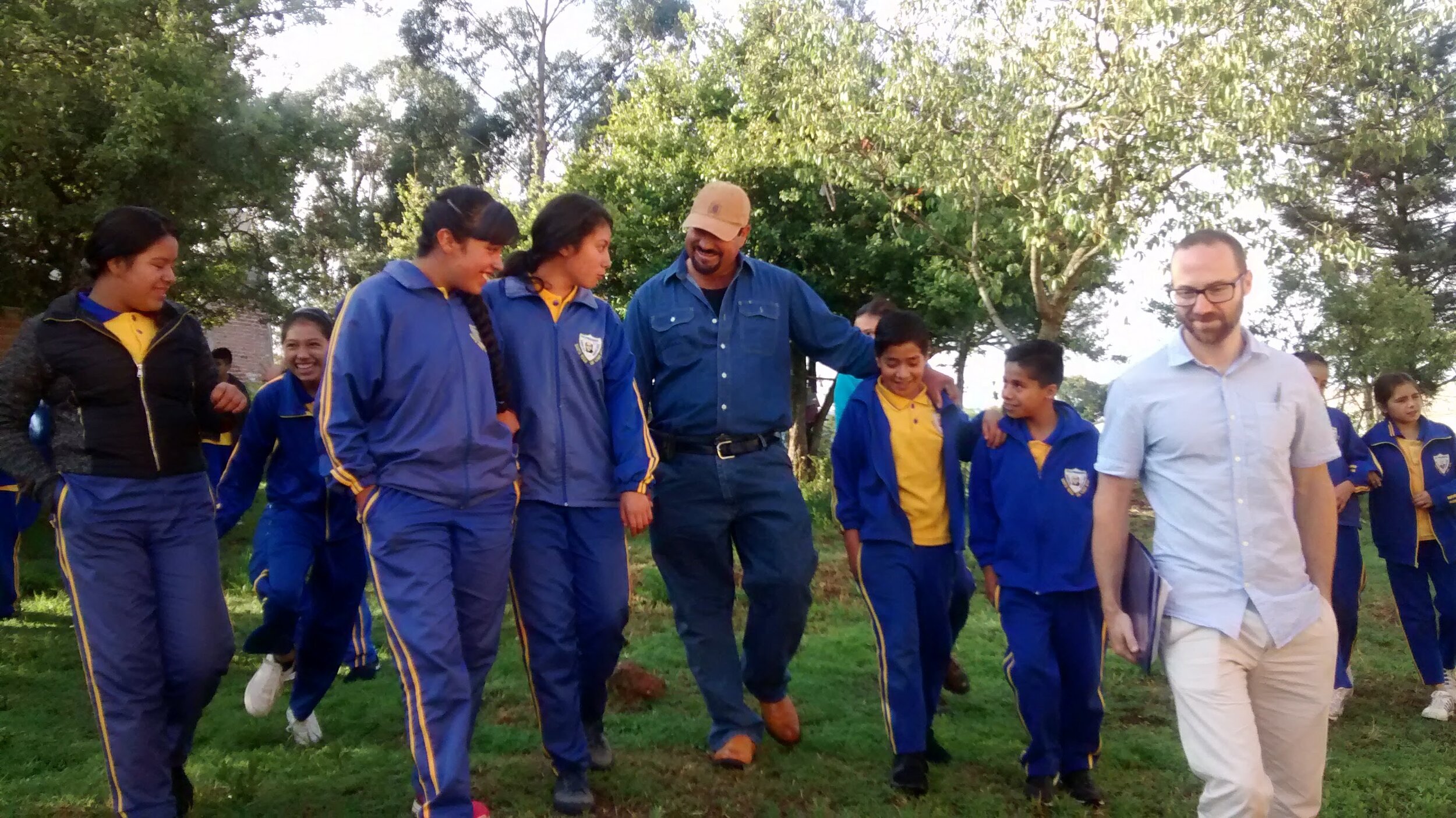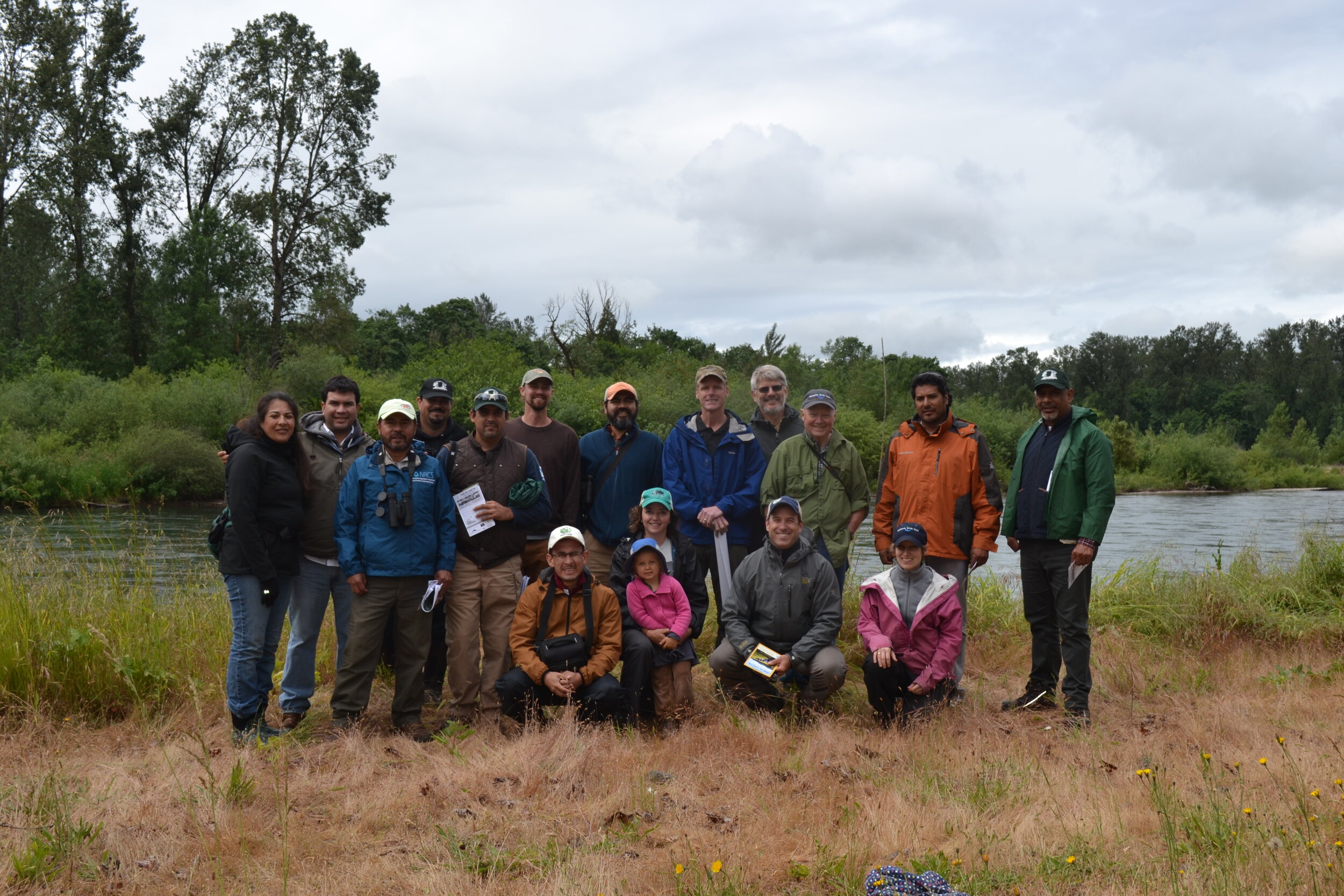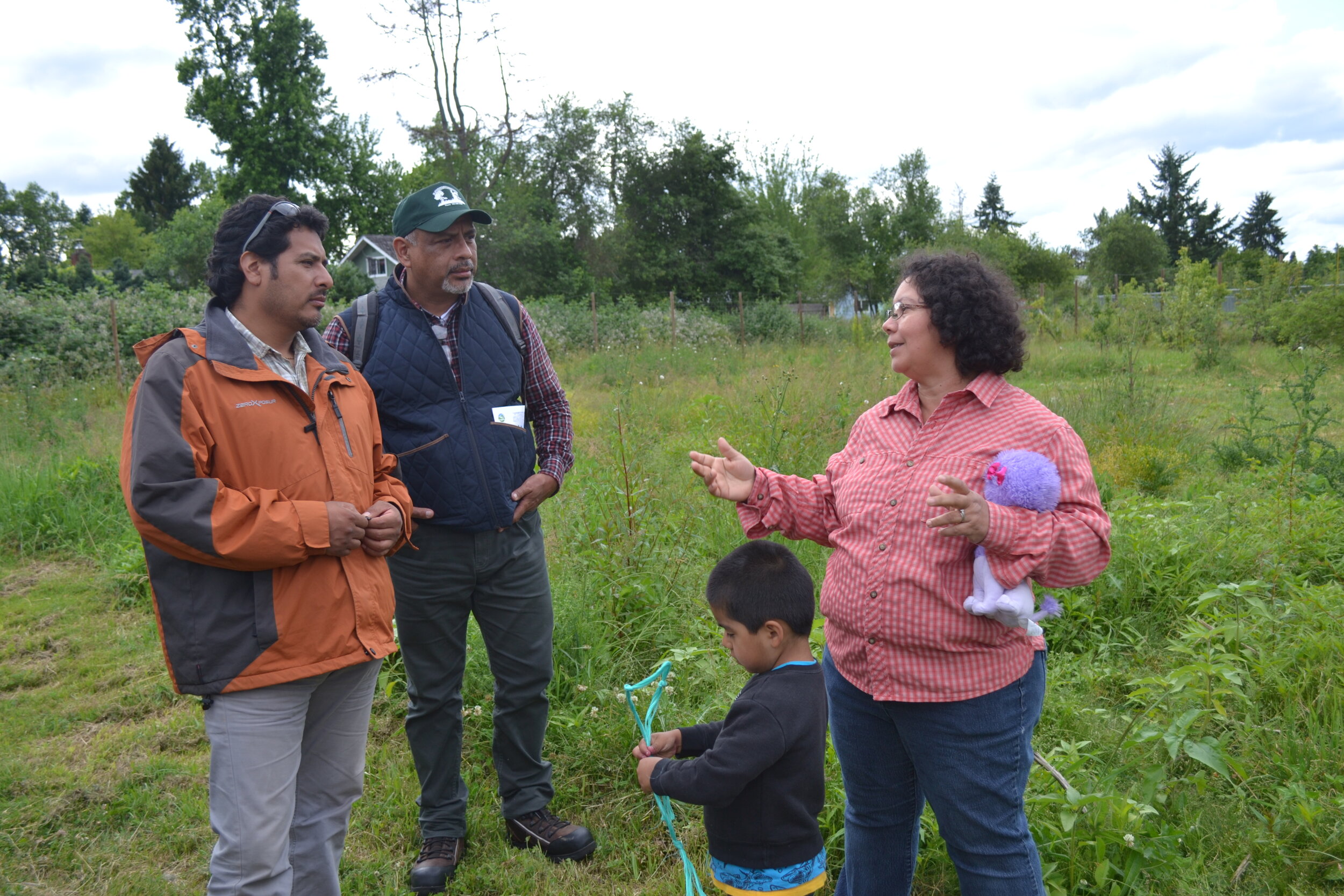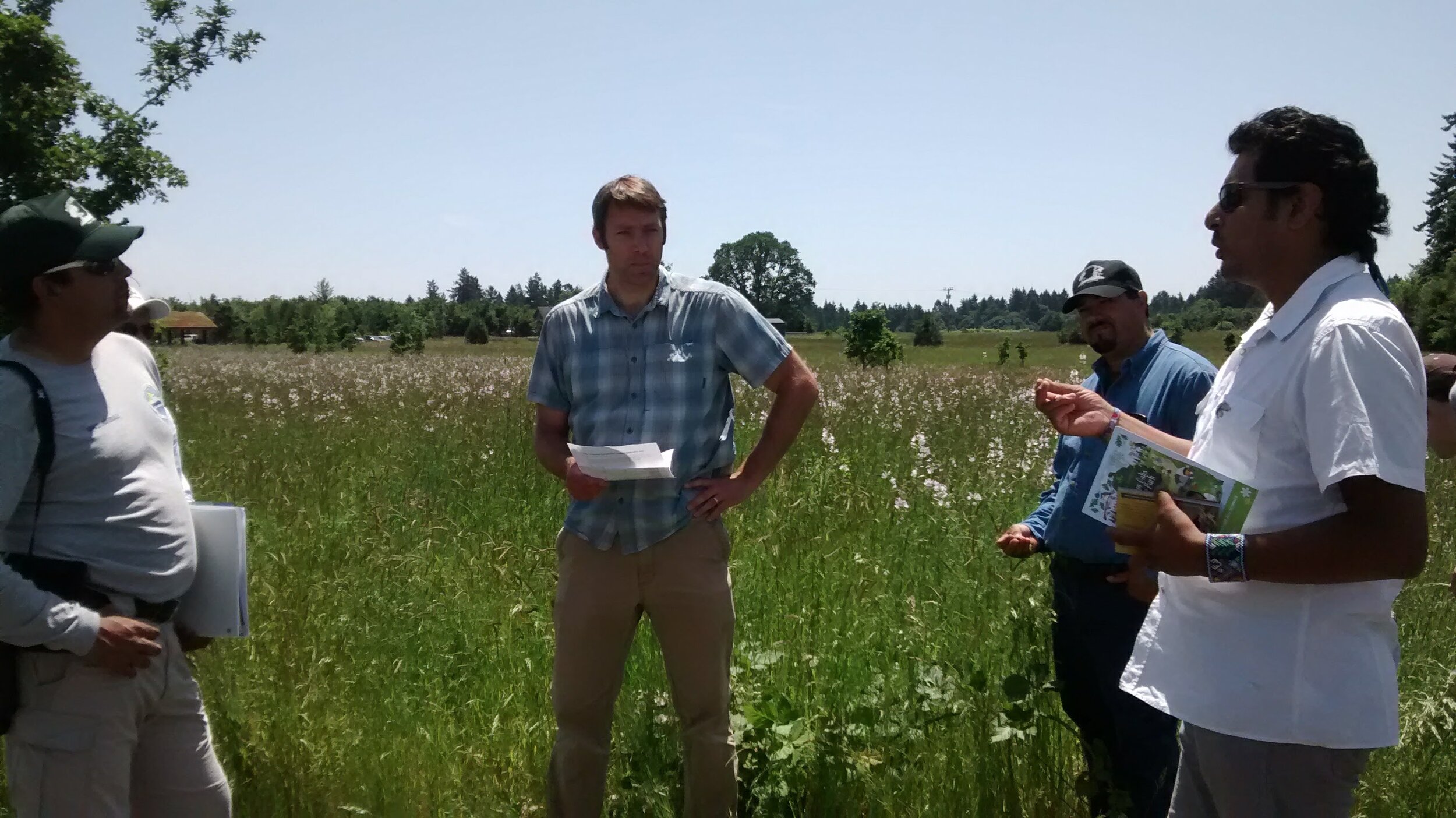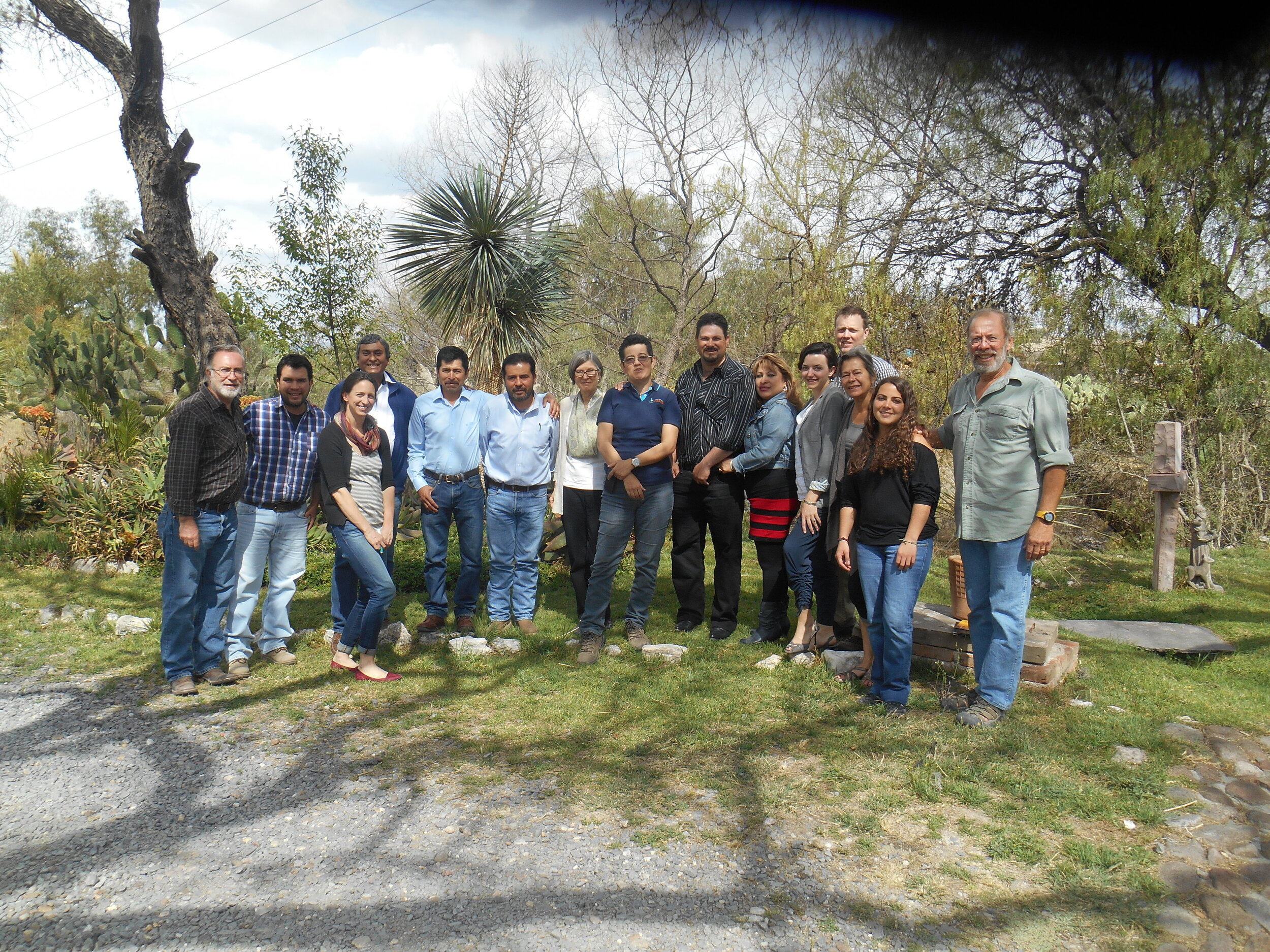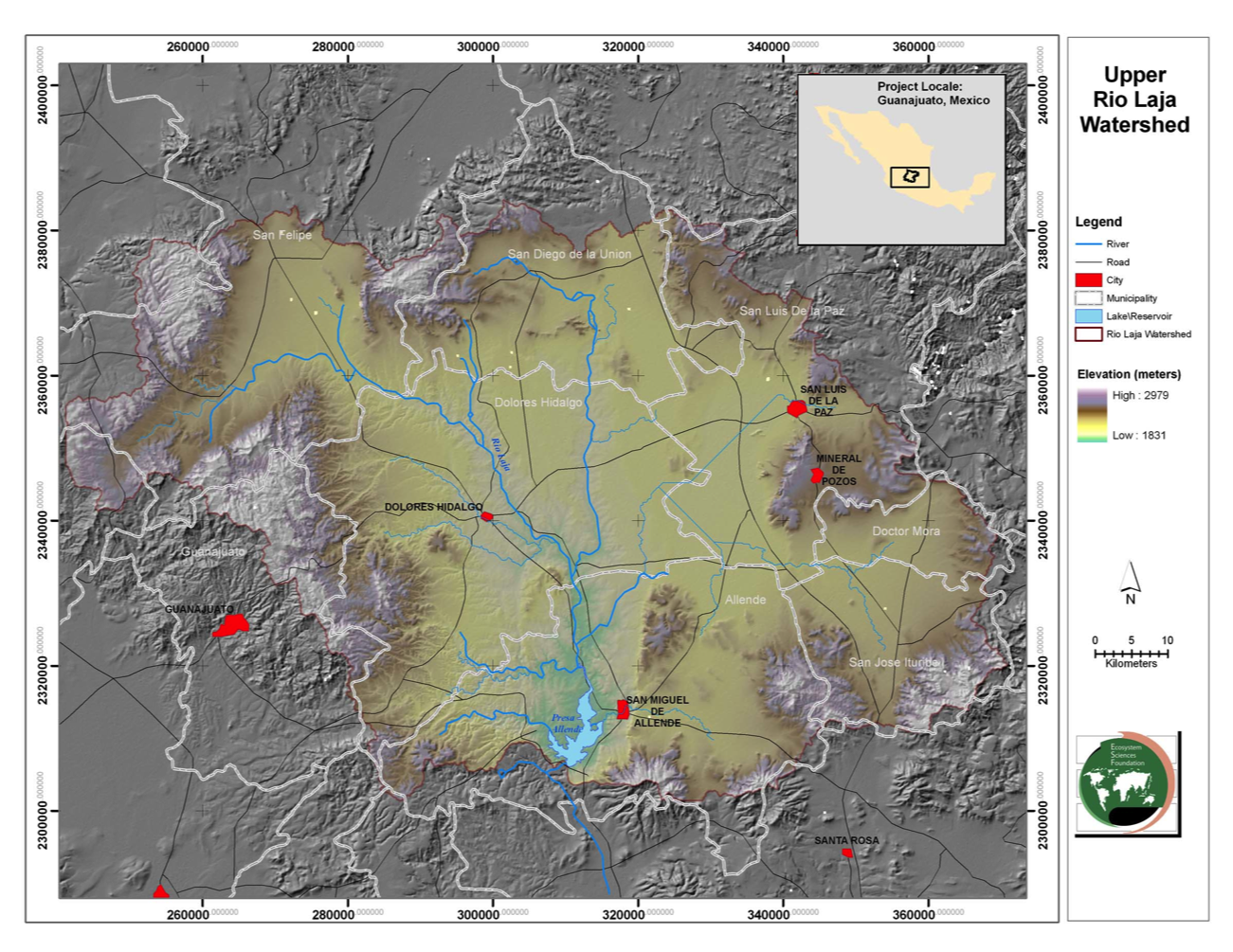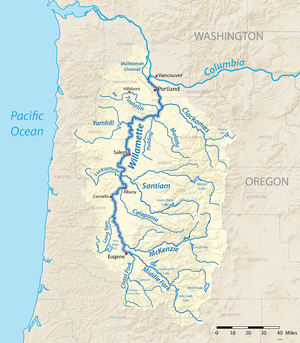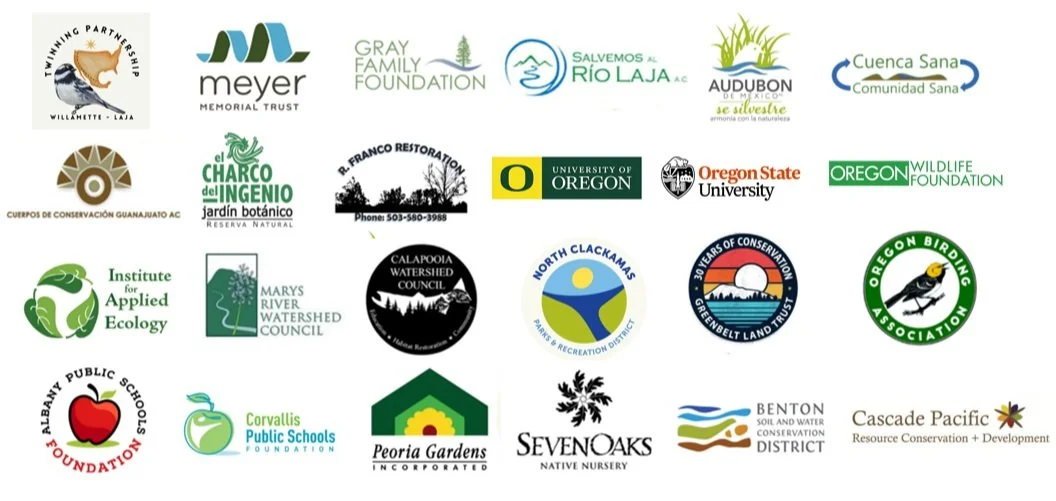Our Partnership
In September 2012, the Willamette River Initiative (WRI) was honored to receive the Thiess International Riverprize, which came with seed money to develop a partnership with an international basin. In 2015 the WRI partners formally selected the Rio Laja, located in the state of Guanajuato in Central Mexico. The Laja faces similar watershed issues such as sand and gravel extraction, wetland destruction, invasive species, diminished upland oak habitats, and water quality degradation. These threats and our proposed conservation solutions are in direct alignment with the State of Oregon’s strategies for habitat and species recovery. The Laja partners, including the State Institute of Ecology, Guanajuato, and several NGO’s have also been highly strategic in choosing locations for aquatic, riparian and upland oak habitat conservation and community education and outreach.
A significant factor in choosing the Laja was cross-cultural connections between communities in the Laja and the Willamette’s own Mexican immigrant population. The cultural ties are invaluable considering the large Mexican migrant work force in the Willamette’s native plant nurseries and contracted forestry and riparian planting companies. The “silent heroes” of conservation in Oregon and the Willamette basin are these immigrants who often work in inclement weather conditions, with higher risk of exposure to physical and chemical hazards, and tend to be the major financial providers for their families and thus dependent on year- round, stable employment from businesses.
The Willamette River Initiative partners are moving in the direction of cultural and racial diversification, equity and inclusion within their own organizations and conservation planning with a focus on local Latinx communities. The Willamette-Laja Twinning Partnership has sparked new partnerships and continues to plan cross-cultural exchanges for professionals and primary school teachers interested in watershed restoration and education. Using a platform of shared neotropical migratory bird species creates a direct cultural link based on ecological connectivity in the flyway. The Willamette-Laja partnership project is focused on full lifecycle conservation along the flyway using education, engagement and economic development with rural and urban Latinx communities. Robust neotropical migratory bird monitoring data sets exist with Laja partners through citizen monitoring and community engagement funds and US technical assistance in the past. Combining Laja and Willamette data sets we have confirmed over forty neotropical migratory bird species known to seasonally inhabit both basins. While our partnership has identified several specific shared species, for our youth program we will focuses on three specific “flag” species that are representative of other shared migratory species in three distinct habitats: aquatic, riparian, and oak.
Long-term, our youth education, local community engagement and habitat restorationy projects will indirectly benefit all shared migratory species in Laja and Willamette by decreasing pressure on local forest resources, creation of local ecotourism and recreation economies, and fostering community understanding and value for birds and the local watersheds. Please check out our Willamette-Laja Twinning Partnership Vision, Mission and Values reflected in our 2019- 2023 Strategic Plan.
Twinning Vision/Mission Statements
Cross-jurisdictional actions for watershed health addressing climate change locally and promoting bi-national collaboration and peace.
The Twinning Partnership fosters peace through a cross-cultural bridge creating a sense of personal purpose and collective power for educators, conservation professionals, youth, and our communities.
The Twinning Partnership achieves measurable outcomes for migratory species and their habitats through collective, action-oriented education and peer-to-peer learning.
Twinning Values
Respect, Empathy and Understanding- cultures and peoples, and with the natural world
Creativity and Innovation- program design and exchange products
Latinx Engagement and Inclusiveness- intertwined in all our programs 6 | Website content 2020
Environmental Health- human safety and bird habitats
Motivation and Inspiration- diverse communities and all stages in career development
Whole Child Development- cross-discipline curriculum and real-world opportunities
Borderless Connections- migration of birds and humans during political uncertainty and global environmental hurdles
Collectiveness- Continuous peer-to-peer learning opportunities across programs
Critical thinking- Community members and partners

